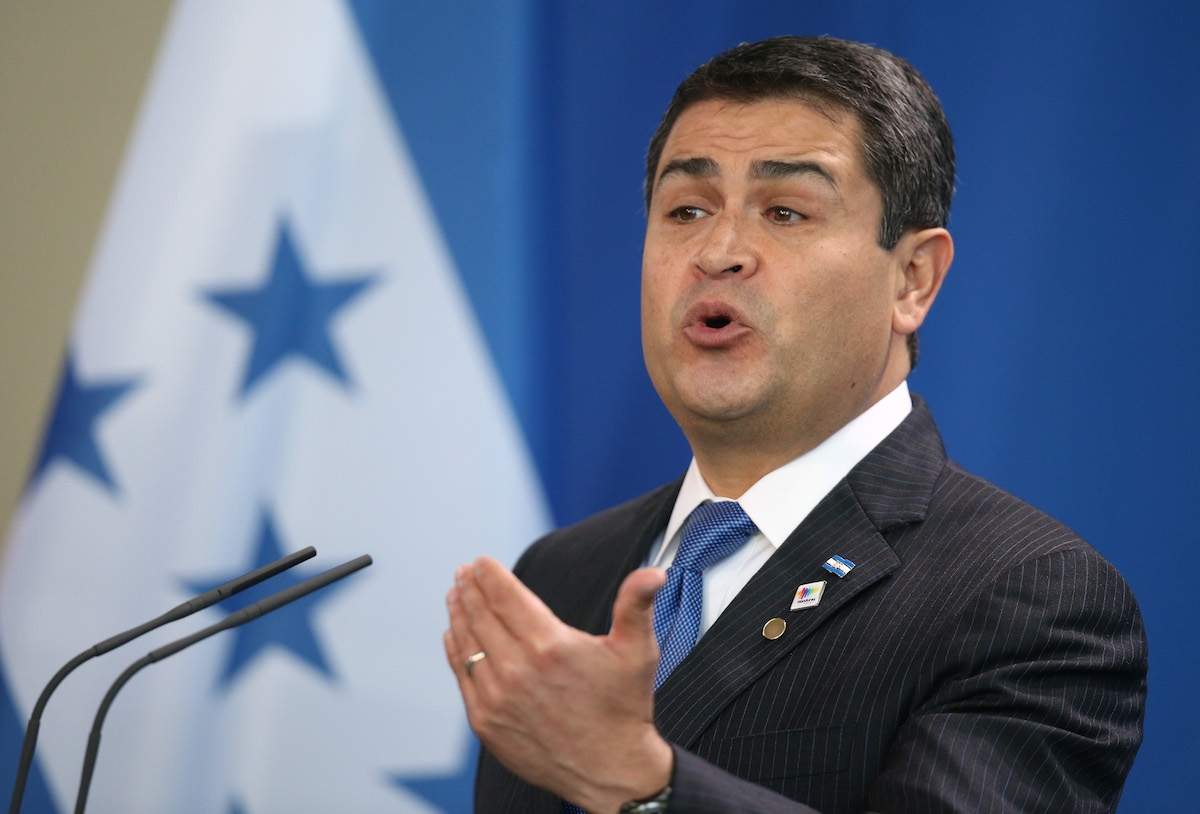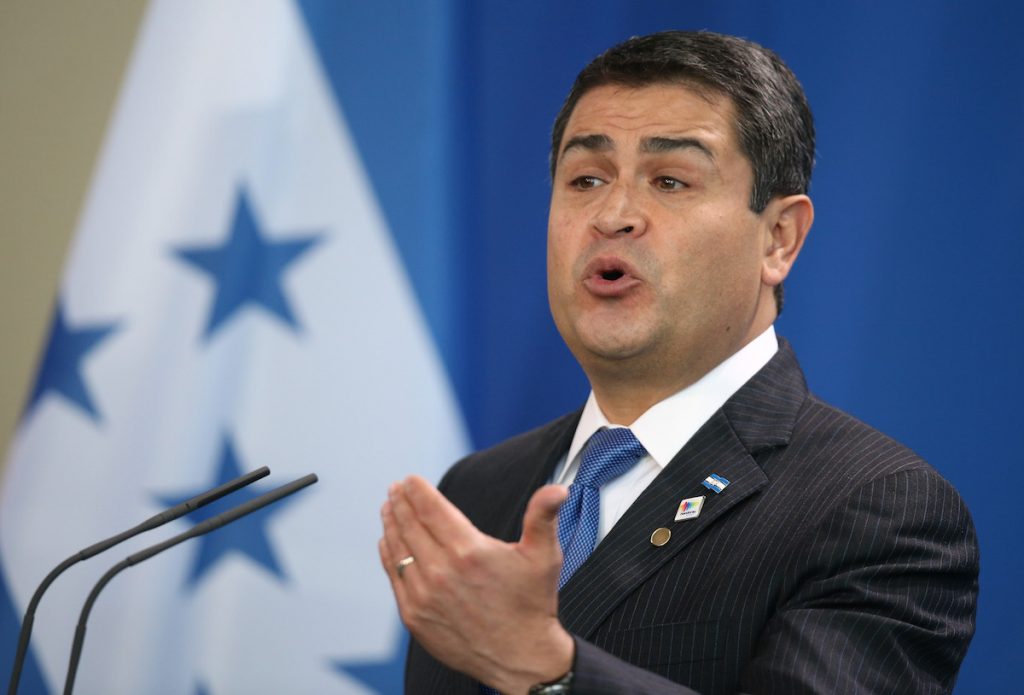In the days since Hondurans turned out to cast their votes in the presidential election almost a week ago, no winner has been declared. With each passing day, frustration, distrust, and accusations of voter fraud mount. People have, as a result, taken to the streets to protest current President Juan Orlando Hernández and rampant corruption.
As social media is inundated with images and first-hand accounts of the tense and harrowing conditions, it can become difficult to parse what is happening. Here’s a breakdown at what’s happened since the election.
1
He changed re-election rules.
Years before he became the president, Hernández set a plan in motion to change the way re-election works in Honduras, making way for him to extend his eventual presidency. In 2012, he served as the president of the Honduran Congress, where he schemed to illegally remove four members of the Supreme Court. New judges loyal to Hernández and the Partido Nacional took their place. In 2015, they ruled that limiting the term infringed on someone’s right to run for office, according to The New York Times.
Despite the Honduran constitution strictly stating that presidents can only serve one term, Hernández is using this 2015 ruling to run for re-election. On November 26, he faced off against Partido Anticorrupción’s Salvador Nasralla and Luis Zelaya, of the Partido Nacional, despite almost two-thirds of the country opposing Hernández’s re-election.
2
Opposition to Hernández grew before the elections.
Between grassroots movements and two new political parties (Libertad y Refundación and Partido Anticorrupción), opposition to the president grew. Libertad y Refundación and PAC joined forces to form the Opposition Alliance.
Online, people also used the hashtag #FueraJOH to voice their opposition.
3
Nasralla initially led by five percentage points.
By Monday morning, Nasralla led by five percentage points with 57 percent of polling sites accounted for. This is when the electoral commission – controlled by Hernández’s allies – canceled the counting of the ballots, according to The New York Times.
Nasralla, assuming the role of president-elect, discussed his policies in a radio interview. JOH laid low on Monday, but took to Twitter to tell people that he knew he’d emerge victorious. Zelaya conceded.
Meanwhile, people questioned why there was a delay as the 18,000 polling stations submitted their tallies electronically immediately after the election.
4
Counting resumed Tuesday.
By Tuesday afternoon – a day and a half later – the commission’s began counting once again, with JOH quickly catching up to his opponent. By this point, allegations that deceased Hondurans had cast their votes in favor of Hernández started cropping up on Twitter.
5
Both candidates agreed to respect the results.
Through the Organization of American States, Nasralla and Hernández signed an agreement to respect the commission’s results. Shortly after, the organization’s computer was once again out of service. The commission said it was a result of an overloaded server.
6
Nasralla rejected the agreement.
By Wednesday night, Nasralla backed out of the agreement. “I signed that document before the electoral court’s computing center went down and that was a trap,” he said at a news conference, according to the Associated Press. “The agreement with the OAS was to respect trustworthy results without alteration … and the court has altered the documents in the last two days. That is unacceptable.”
7
Protests intensified.
On Thursday, protests hit a fever pitch. Beginning on Wednesday night, as Nasralla began to lose his lead, protesters hit the streets, some of them overnight. On Thursday, many congregated at the vote counting center in Tegucigalpa, things turned deadly, according to The Guardian. Demonstrators burned tires and threw rocks. And Police officers, who were employed to quell protesters starting on Sunday, used tear gas and water cannons. At least one man was reported dead.
8
Hernández's lead grew.
By Thursday, with 91 percent of the vote counted, Hernández had 35,000 more votes than his opponent. Nasralla asked his backers to continue putting pressure on the voting commission by heading to the streets to protest. Zelaya similarly told his followers to “defend democracy.”
As each party called on their supporters to protest, Caritas de Honduras – a section of the Catholic Church that deals with social issues – chastised them, according to the Washington Post. “That situation every day makes integration of society and the recovery of governability more distant,” the organization said in a statement.
9
The vote is delayed once again.
By Thursday, the voting commission says protests – particularly the tear gas that seeped into the building – had delayed the vote once again. Officials were forced to evacuate the building, according to David Matamoros, president of the electoral court.
Matamoros added that 2,000 reports could not be counted because of “inconsistencies,” including missing signatures and seals. He stated that these cases would need a special count.
10
Final votes to be counted by hand.
By Friday morning, the electoral court started counting 1,000 or so boxes that were inconsistent. By this point, the commission has counted nearly 95 percent of the vote. JOH is leading with 46,000 more votes than Nasralla, but it’s not clear how many votes are still unaccounted for, according to Bloomberg.
With things seemingly going for Hernández, it’s likely the unrest won’t soon die down. For many, JOH – a US ally – winning (and using corrupt methods to keep hold of his power) feels reminiscent to the US-backed coup in 2009 that ousted Manuel Zelaya and led to political instability in the country.




